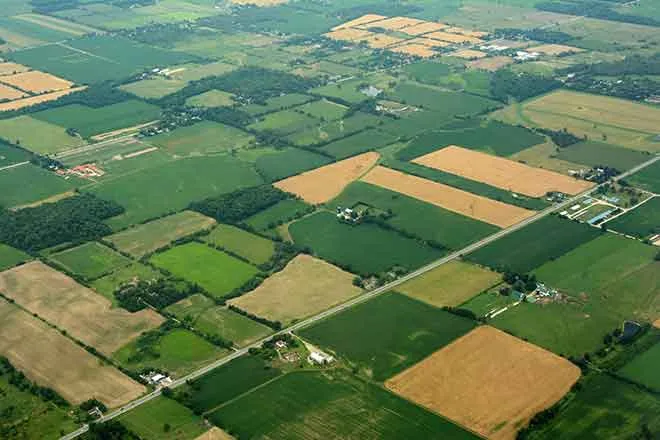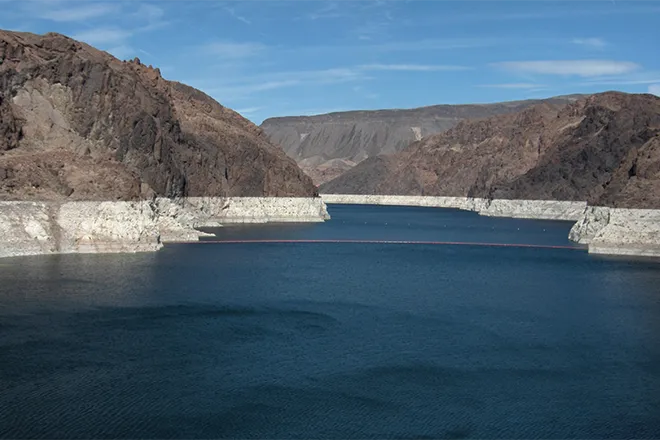
Daily Audio Newscast - March 22, 2024
News from around the nation.
Dakotas among states still weighing controversial pipeline plan; US calls for immediate cease-fire in Gaza tied to hostage release; TN bill would boost public's role in TVA decision-making process; ReImagine Appalachia plans co-ops to kick-start new energy economy.
TRANSCRIPT
(upbeat music) - The Public News Service DOA newscast, March the 22nd, 2024.
I'm Mike Clifford.
New public hearings and legal decisions are expected in the coming weeks and months about a controversial pipeline project in the upper Midwest.
The company behind the effort appears ready for the long haul, but as our Mike Mullen reports, so are its opponents. - Summit Carbon Solutions has been seeking permits and trying to acquire land in multiple states, including North Dakota, for a maze of pipelines it wants to build.
Those pipes would carry ethanol plant emissions and store them underground.
Attorney Brian Jordy represents property owners challenging the project.
Despite some regulatory setbacks, he says it's clear the company is still forging ahead. - Every state is still in play.
There's nothing different from a year ago than right now. - This week, Jordy made arguments before the South Dakota Supreme Court in a complex element of the case tied to landowners' rights.
And North Dakota regulators are formalizing plans for public hearings for Summit's new permit application after saying no last year.
Summit says the initiative has environmental and economic benefits.
However, opponents worry about safety issues and are skeptical of the carbon sequestration claims.
I'm Mike Mullen. - The latest North Dakota public hearing could begin as early as this spring.
Other states connected to the project include Iowa, Minnesota, and Nebraska.
Now for The Guardian, the French ambassador to the UN.
Security Council addressed reporters on Thursday regarding Israel's ongoing war in Gaza, saying the first bridge to cross is to have this Ramadan ceasefire now.
His comments came after the US, which has vetoed numerous ceasefire resolutions in the council, drafted a new resolution calling for an immediate ceasefire and a hostage deal in Gaza.
And Tennesseans want more say in how the Tennessee Valley Authority plans for their future electricity needs.
Danielle Smith lets us know a bill now in Congress could give the public more influence. - It's called the TVA, Increase Rate of Participation Act.
And it would require a more open decision-making process for the utility.
Brianna Nicely with the group Appalachian Voices says TVA is currently developing its new integrated resource plan to meet future energy demands.
The bill would require more public participation in the IRP proceedings. - Right now, the stakeholders who get to provide input early on in the IRP process are all hand-selected by TVA.
You can't choose to be in that IRP working group. - The utility serves over 10 million people across six states.
TVA says it's reviewing the legislation. - Advocates say it's important for Tennesseans to work with Congress on the best way to improve public input in the TVA decision-making process.
This is Public News Service.
Now to Ohio, where leaders there and other Appalachian states have a plan to turn the regional economy around. - Natural resources from the Appalachian region once powered much of American industry, but the area suffered an economic collapse in the late 1970s and 1980s.
Now the group Reimagine Appalachia plans to use worker cooperatives to take advantage of the transition to a new energy economy.
Wendy Patton, research director for Reimagine Appalachia, says it's an opportunity they could not pass up. - There are new possibilities for the region and for companies in the region.
Maybe a once-in-a-generation chance to explore how to anchor investments in the region and create the kind of wealth that doesn't come and go, but that is sustained through time. - Patton says the worker co-ops will focus on sectors like renewable energy infrastructure, sustainable manufacturing, and high-speed internet construction.
Mark Richardson reporting. - The program will be developed using funding grants from the $350 billion American Rescue Plan, economic development agencies from the Central Appalachian and economic development agencies from the Central Appalachian counties in Ohio, Kentucky, Pennsylvania, and West Virginia.
And our Eric Tegedorf reminds us that March is colorectal cancer awareness month. - Colorectal cancer is the third most common form of cancer and the second most lethal form in the world.
Dr. Margaret Chan with Kaiser Permanente in Linwood, Washington, says the number of younger Americans with advanced stages of colorectal cancer has gone up in recent decades, prompting the U.S.
Preventative Service Task Force to lower its recommended screening age from 50 to 45.
This is surprising to a lot of us, but the statistics have shown this change from what we used to think is a disease for older people to now a disease for younger people.
Chan says the proportion of cases for people under 55 has nearly doubled over the last 25 years.
However, she also knows the total number of colorectal cancer cases has actually declined, and that's likely due to better detection. - And finally, sticking with the health beat, almost one in four Arizona adults report getting no physical activity or exercise other than on their jobs.
Alex Gonzalez reports an event in Phoenix this Saturday aims to get more people off the couch and moving.
It's the American Heart Association's annual Phoenix Heart Walk.
Studies have found people who sit for eight hours or more have up to seven times higher risk of stroke than those who are more physically active.
Alisha Ward is the mother to four-year-old Jackson, a congenital heart defect survivor.
They'll be at the Heart Walk, and Ward says events like these help raise awareness and cultivate a sense of community. - The heart does not just affect one thing, it affects many, and so I think whether you're young or old, same advice, listen to your body, get checked out, and really reach out and find your people that can support you and your people that can help you. - This is Mike Clifford, thank you for wrapping up the week with Public News Service, member and listener supported.
Hear us on interesting radio stations, your favorite podcast platform.
Find our trust indicators at publicnewsservice.org.

















